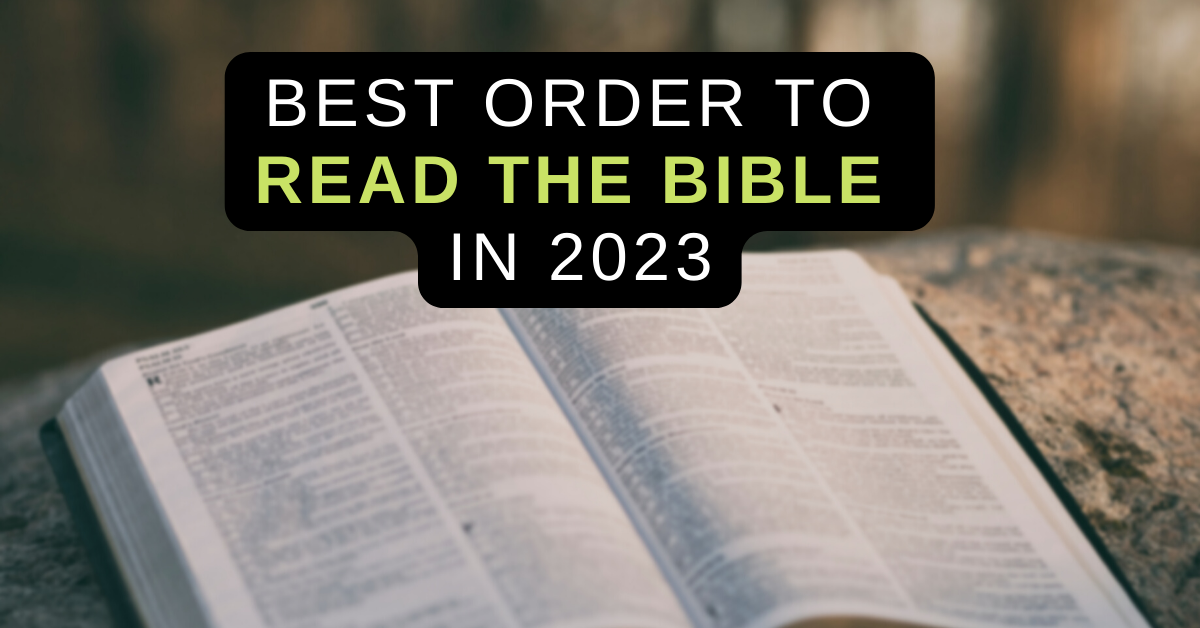Information related to What Order To Read The Bible For The First Time can be found here, hopefully providing broader insights for you.

Reading the Bible for the First Time: A Journey of Discovery
As I embarked on my journey through the Bible for the first time, I felt a surge of excitement and curiosity. The sheer magnitude of this ancient text left me both awe-inspired and slightly overwhelmed. In this newfound adventure, I realized the importance of approaching this journey with a discerning mind, an open heart, and a thoughtful approach.
Understanding the Structure of the Bible
The Bible is a collection of writings that span centuries, composed by various authors in different cultural and historical contexts. It is divided into two main sections: the Old Testament and the New Testament. The Old Testament primarily contains the historical accounts, laws, and prophecies of the ancient Israelites, while the New Testament focuses on the life and teachings of Jesus Christ and the early Church.
Reading Plan for the First-Timer
For those venturing into the world of the Bible for the first time, structured reading plans can provide a valuable guide. Here’s a recommended approach:
- Chronological Reading: This plan follows the order of events in the Bible, starting with Genesis and moving through the historical books, Gospels, and Epistles. It provides a comprehensive overview of the Bible’s narrative arc.
- Topical Reading: This approach allows you to focus on specific themes or subjects, such as faith, love, or salvation. By reading verses and passages related to a particular topic, you can gain a deeper understanding of its significance in the Bible.
- Guided Reading: If you prefer a more structured approach, there are a variety of study Bibles and devotional books available that provide insights, commentary, and questions for reflection.
Key Concepts and Themes
The Bible is a treasure trove of profound concepts and timeless truths. Some of the central themes woven throughout its pages include:
- God’s Character: God is described as a loving, holy, and just being who created the world and all that is in it. His nature and attributes are revealed through His interactions with His people and through the words of the prophets and apostles.
- Sin and Redemption: The Bible acknowledges the reality of sin and its consequences. However, it also offers hope and redemption through the grace of God, made possible through the sacrifice of Jesus Christ.
- Humanity and Purpose: The Bible teaches that humans are created in the image of God, with inherent value and a purpose to live in relationship with Him. It provides guidance on how to live a fulfilling and righteous life.
Latest Trends and Developments
In recent years, there has been a surge of interest in Bible study and interpretation. This has led to the development of new resources, such as:
- Digital Bible Apps: Apps like Bible Gateway and YouVersion offer easy access to multiple Bible translations, search tools, and study notes.
- Online Courses and Podcasts: Platforms like Coursera and iTunes University provide access to free and paid courses on Bible history, theology, and interpretation.
- Biblical Archaeology: Archaeological discoveries continue to shed light on the historical context of the Bible, providing evidence and insights that enhance our understanding of the text.
Tips and Advice for First-Time Readers
- Start small: Don’t try to read the entire Bible in one sitting. Set aside short periods of time each day or week for reading and reflection.
- Choose a translation you enjoy: There are many different English translations available. Find one that resonates with your reading style and comprehension.
- Ask questions: Don’t be afraid to ask questions about what you read. Consult with a pastor, Bible study leader, or trusted Christian mentor.
- Study with others: Join a Bible study group or discussion forum to share insights and learn from the perspectives of others.
- Pray: Before you start reading, ask God to guide your understanding and help you apply the truths you discover to your life.
Frequently Asked Questions
- What is the best way to read the Bible? There is no single “correct” way to read the Bible. Choose a method that best suits your learning style and goals, whether it be chronological, topical, or guided reading.
- Why should I read the Bible? The Bible offers wisdom, guidance, and comfort for navigating the challenges and joys of life. It provides a deeper understanding of God’s character, our own purpose, and the hope of salvation.
- Is it important to understand every word in the Bible? While it’s not possible to fully comprehend every passage, seek to grasp the main message and themes. Focus on understanding the overall narrative and the central truths that the Bible conveys.
Conclusion
Approaching the Bible for the first time can be an awe-inspiring and rewarding experience. By choosing a thoughtful reading plan, understanding key concepts, and taking advantage of available resources, you can embark on a transformative journey of discovery. The Bible’s wisdom, guidance, and hope will enrich your life and bring you closer to the God who loves you.
Are you ready to dive into the depths of the Bible? Let this article be your guide as you embark on a journey of personal growth, understanding, and connection with the divine.

Image: stepbibleguide.blogspot.com
What Order To Read The Bible For The First Time has been read by you on our site. Thank you for your visit, and we hope this article is beneficial for you.